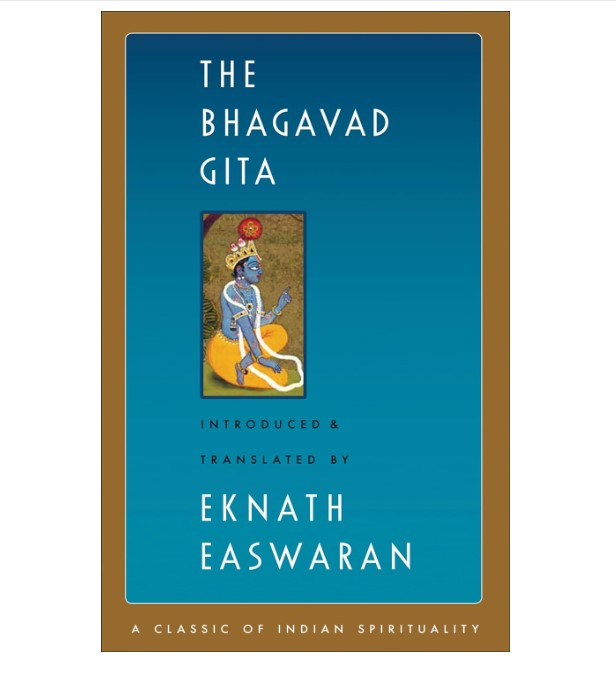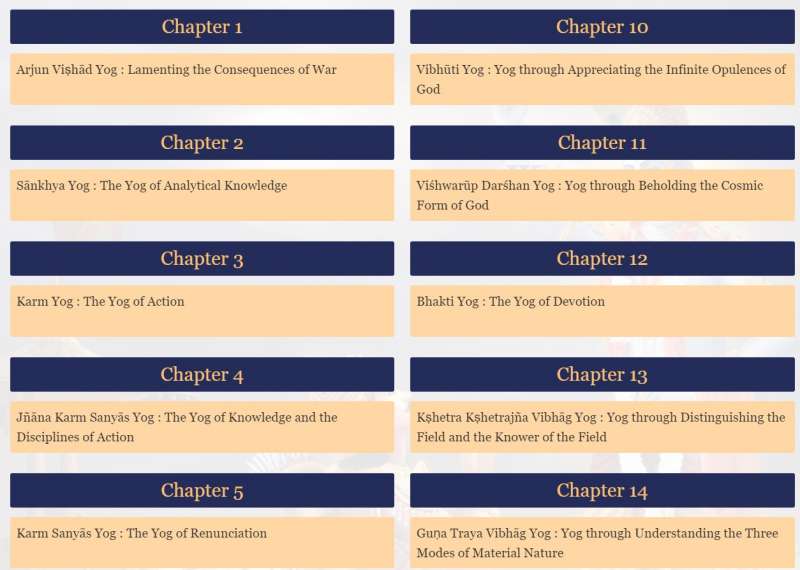Bhagavad Gita

The Bhagavad Gita, often referred to as the Gita, is a revered scripture in Hinduism that forms a significant part of the Indian epic, the Mahabharata. Composed in the form of a dialogue, the Gita is a conversation between Prince Arjuna and the Lord Krishna, who serves as his charioteer.
Set on the battlefield of Kurukshetra, the Gita occurs just before a great war is about to commence. Arjuna, torn by moral dilemmas, seeks guidance from Krishna, who serves as his charioteer and divine mentor. In response, Krishna imparts profound spiritual wisdom and helps address Arjuna's concerns. He provides insights into life, duty, and the nature of the self.
The Bhagavad Gita addresses various aspects of life, delving into the concepts of dharma (duty/righteousness), karma (action and its consequences), and yoga (paths to spiritual realization). It outlines different paths to attain spiritual fulfillment, including the paths of knowledge (jnana yoga), devotion (bhakti yoga), and disciplined action (karma yoga).
One of the Gita's central teachings is the importance of selfless action and devotion to God, emphasizing that individuals should perform their duties with dedication, without attachment to the results.
The Bhagavad Gita is renowned for its synthesis of various paths to spiritual realization, including the paths of devotion (bhakti), knowledge (jnana), and disciplined action (karma). It provides practical guidance for individuals seeking a balanced and purposeful life, integrating worldly responsibilities with spiritual awareness.
Link to buy: https://www.amazon.com/Bhagavad-Gita-2nd-Eknath-Easwaran/dp/1586380192
Link to read: https://www.holy-bhagavad-gita.org/index











